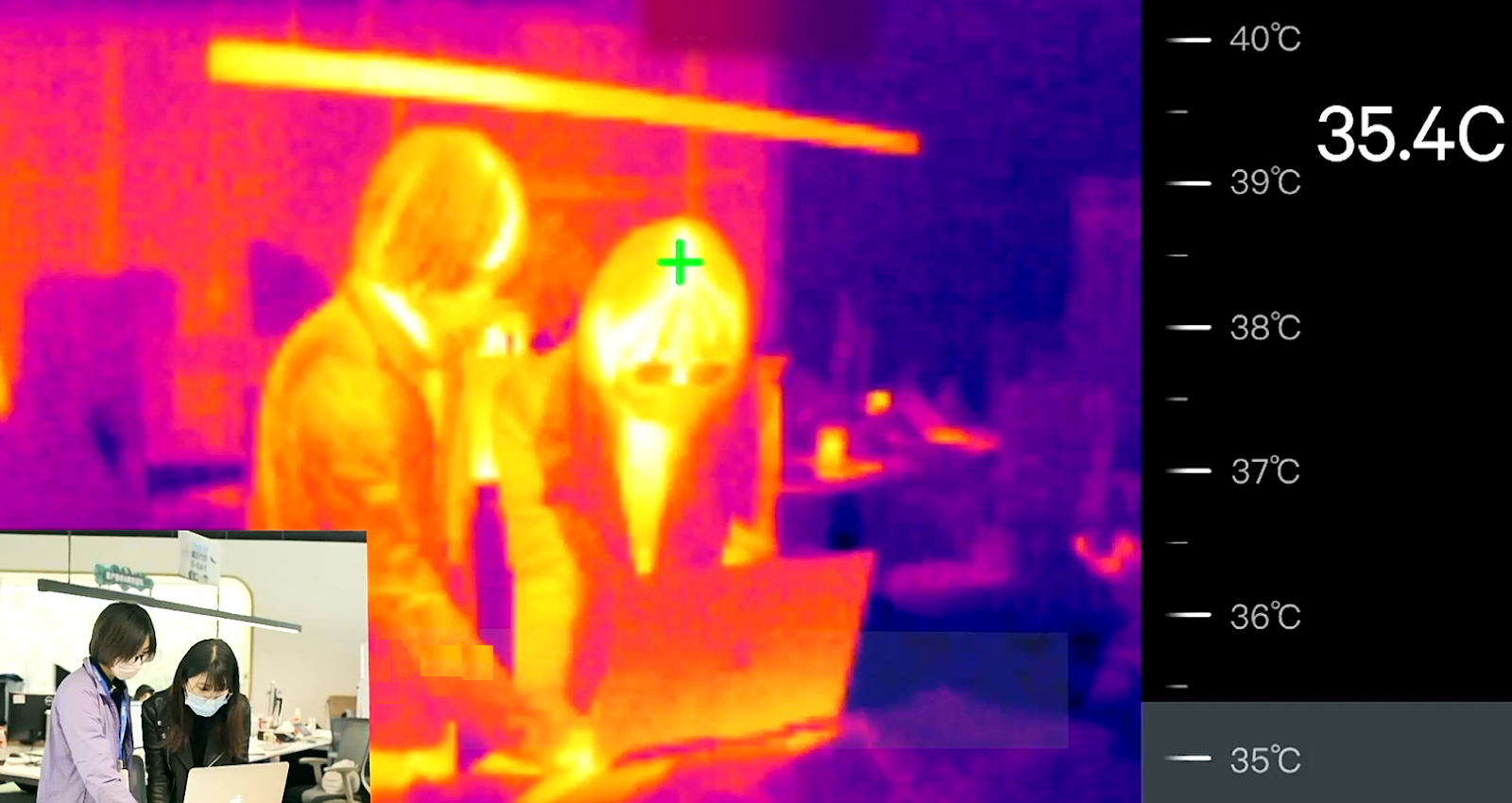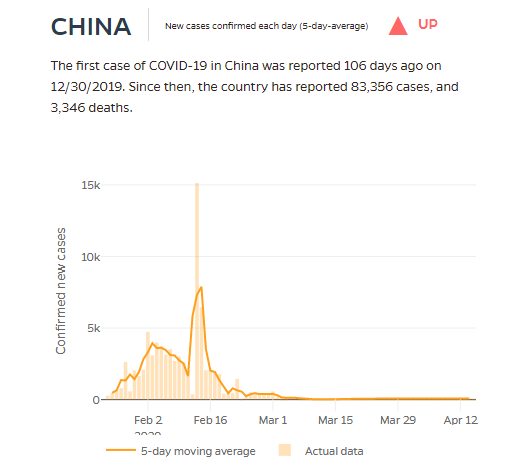Thermal imaging wearables used in China to detect COVID-19 symptoms could soon be deployed in the U.S.
Hangzhou based AI startup Rokid is in talks with several companies to sell its T1 glasses in America, according to Rokid’s U.S. Director Liang Guan.
Rokid is among a wave of Chinese companies creating technology to address the coronavirus pandemic, which has dealt a blow to the country’s economy.
Per info Guan provided, Rokid’s T1 thermal glasses use an infrared sensor to detect the temperatures of up to 200 people within two minutes from up to three meters away. The devices carry a Qualcomm CPU, 12 megapixel camera and offer augmented reality features — for hands free voice controls — to record live photos and videos.
The Chinese startup (with a San Francisco office) plans B2B sales of its wearable devices in the U.S. to assist businesses, hospitals and law enforcement with COVID-19 detection, according to Guan.
Rokid is also offering IoT and software solutions for facial recognition and data management, as part of its T1 packages.

Image Credits: Rokid
The company is working on deals with U.S. hospitals and local municipalities to deliver shipments of the smart glasses, but could not disclose names due to confidentiality agreements.
One commercial venture that could use the thermal imaging wearables is California based e-commerce company Weee!.
The online grocer is evaluating Rokid’s T1 glasses to monitor temperatures of its warehouse employees throughout the day, Weee! founder Larry Liu confirmed to TechCrunch via email.
On procedures to manage those who exhibit COVID-19 related symptoms, that’s something for end-users to determine, according to Rokid. “The clients can do the follow-up action, such as giving them a mask or asking to work from home,” Guan said.
The T1 glasses connect via USB and can be set up for IoT capabilities for commercial clients to sync to their own platforms. The product could capture the attention of U.S. regulators, which have become increasingly wary of Chinese tech firms’ handling of American citizen data. Rokid says it doesn’t collect info from the T1 glasses directly.
“Regarding this module…we do not take any data to the cloud. For customers, privacy is very important to them. The data measurement is stored locally,” according to Guan.

Image Credits: Rokid
Founded in 2014 by Eric Wong and Mingming Zhu, Rokid raised $100 million at the Series B level in 2018. The business focuses primarily on developing AI and AR tech for applications from manufacturing to gaming, but developed the T1 glasses in response to China’s COVID-19 outbreak.
The goal was to provide businesses and authorities a thermal imaging detection tool that is wearable, compact, mobile and more effective than the common options.
Large scanning stations, such as those used in some airports, have drawbacks in not being easily portable and handheld devices — with infrared thermometers — pose risks.
“You have to point them to people’s foreheads…you need to be really close, it’s not wearable and you’re not practicing social distancing to use those,” Guang said.
Rokid pivoted to create the T1 glasses shortly after COVID-19 broke out in China in late 2019. Other Chinese tech startups that have joined the virus-fighting mission include face recognition giant SenseTime — which has installed thermal imaging systems at railway stations across China — and its close rival Megvii, which has set up similar thermal solutions in supermarkets.
On Rokid’s motivations, “At the time we thought something like this can really help the frontline people still working,” Guang said.
The startup’s engineering team developed the T1 product in just under two months. In China, Rokid’s smart glasses have been used by national parks staff, in schools and by national authorities to screen for COVID-19 symptoms.
Temperature detectors have their limitation, however, as research has shown that more than half of China’s COVID-19 patients did not have a fever when admitted to hospital.

Source: Johns Hopkins University of Medicine Coronavirus Research Center
The growth rate of China’s coronavirus cases — which peaked to 83,306 and led to 3,345 deaths — has declined and parts of the country have begun to reopen from lockdown. There is still debate, however, about the veracity of data coming out of China on COVID-19. That led to a row between the White House and World Health Organization, which ultimately saw President Trump halt U.S. contributions to the global body this week.
As COVID-19 cases and related deaths continue to rise in the U.S., technological innovation will become central to the health response and finding some new normal for personal mobility and economic activity. That will certainly bring fresh facets to the common tech conundrums — namely measuring efficacy and balancing benefits with personal privacy.
For its part, Rokid already has new features for its T1 thermal smart glasses in the works. The Chinese startup plans to upgrade the device to take multiple temperature readings simultaneously for up to four people at a time.
“That’s not on the market yet, but we will release this very soon as an update,” said Rokid’s U.S. Director Liang Guan.
Source: https://ift.tt/3bdTVcL
